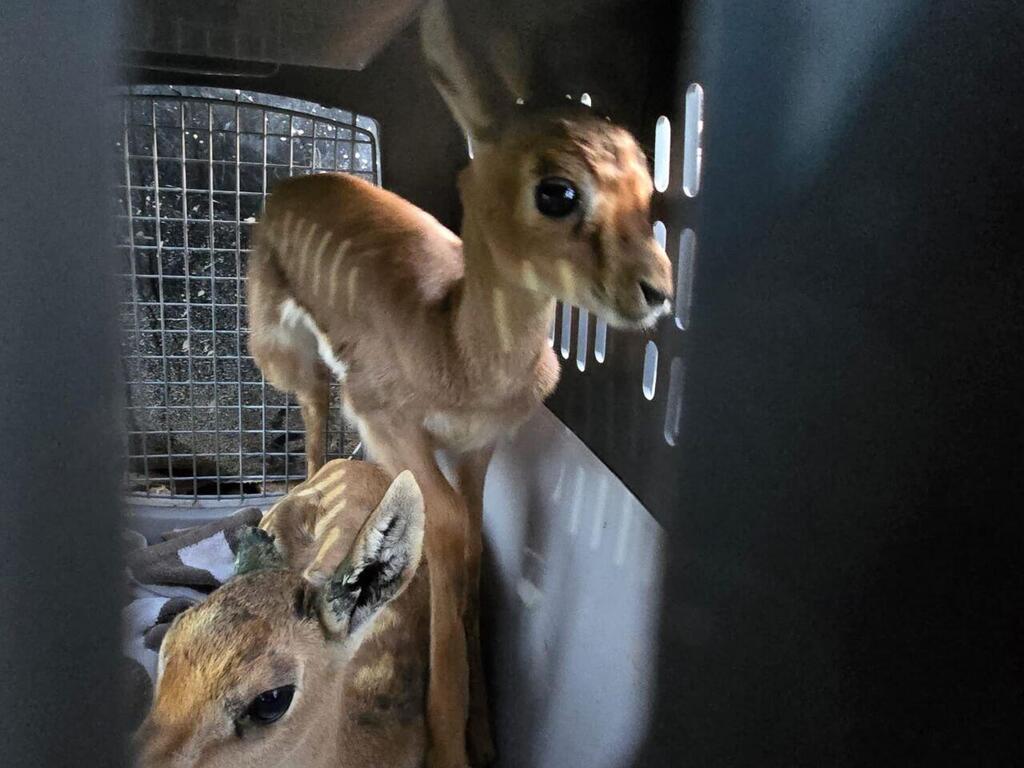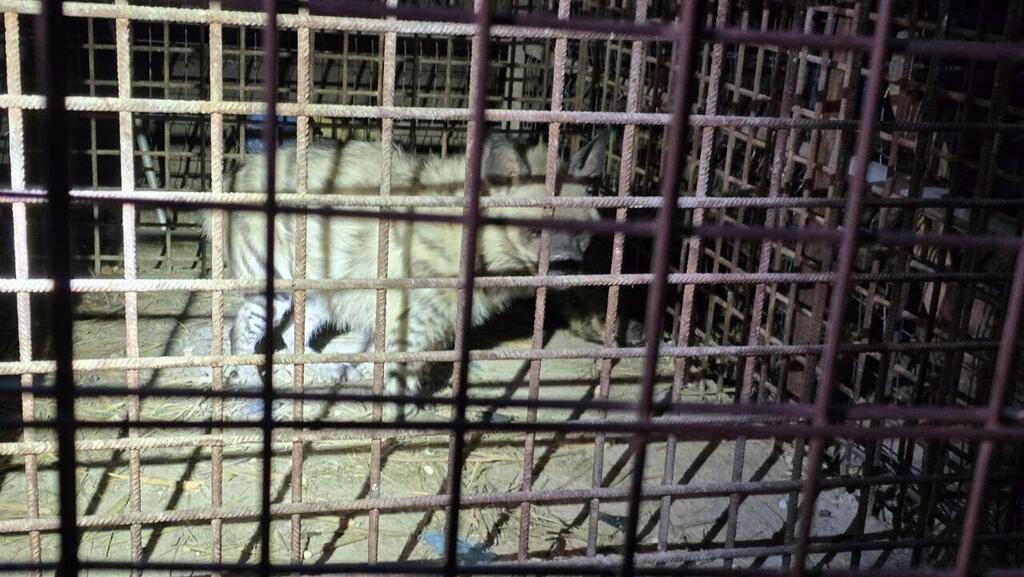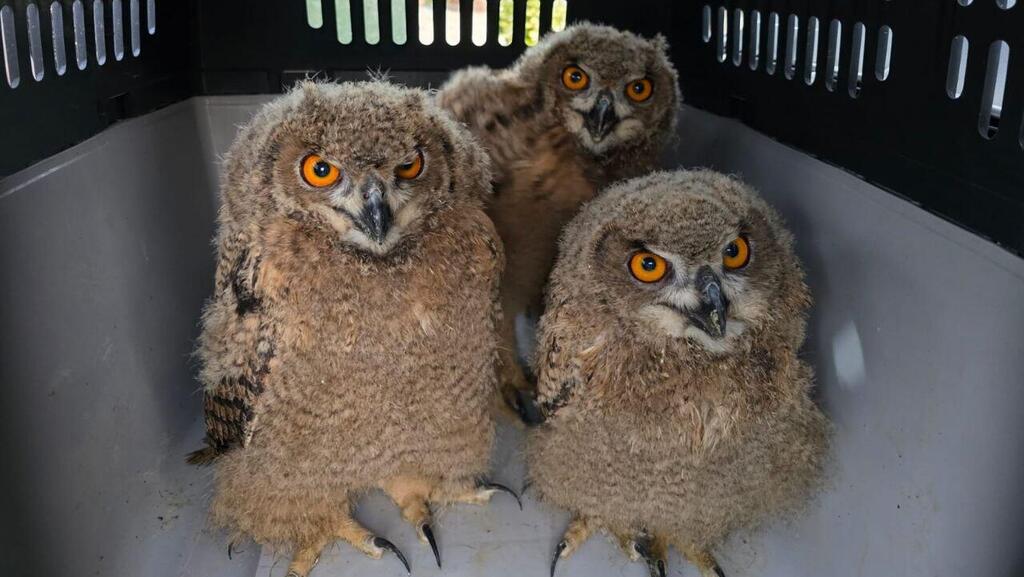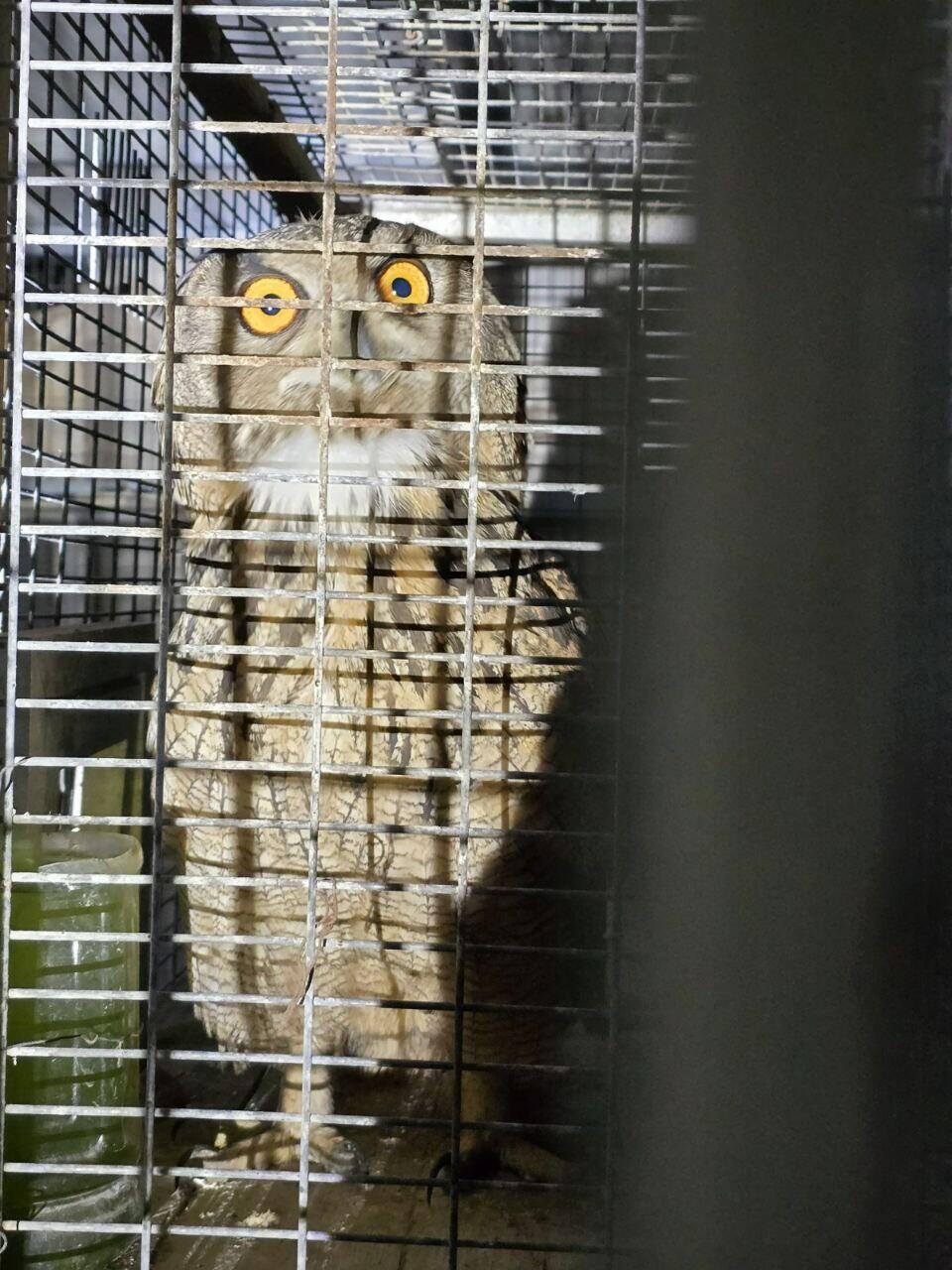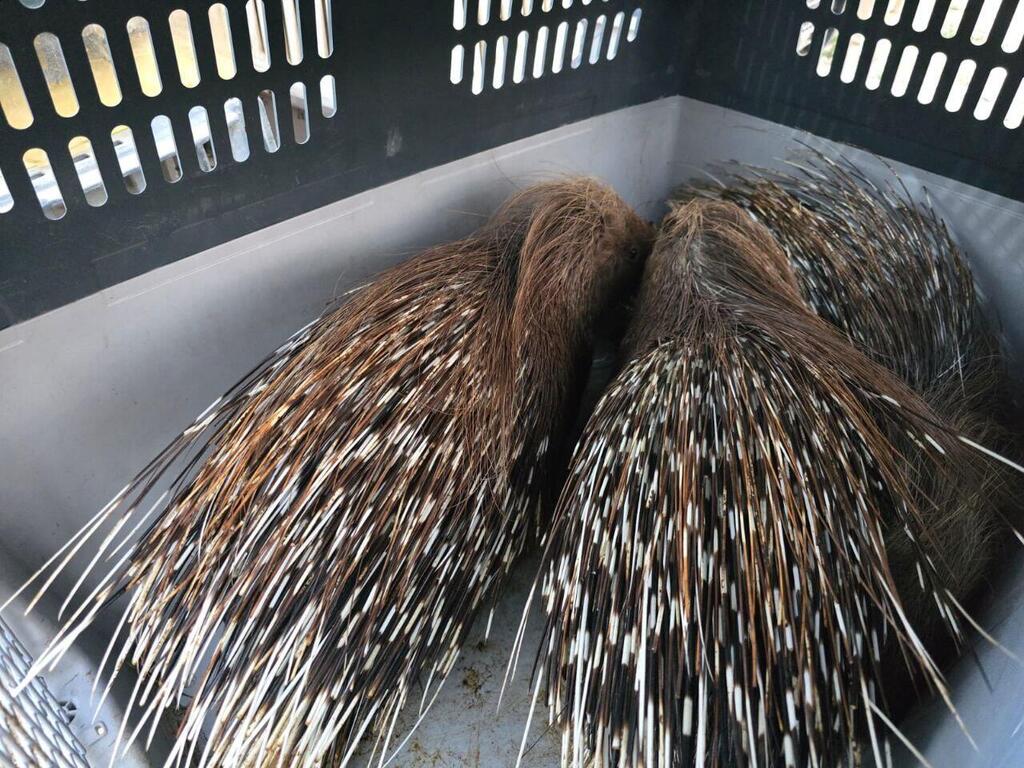Israeli authorities have rescued dozens of wild and exotic animals this week in a major wildlife trafficking bust in Beit Sira, a Palestinian village located near the Israeli city of Modi’in in the central West Bank.
The operation, conducted by the Israel Nature and Parks Authority (INPA) in coordination with local law enforcement, followed a monthlong undercover investigation into suspected illegal wildlife possession and trade. Three residents of the village—a father and his two sons—were detained for questioning.
6 View gallery
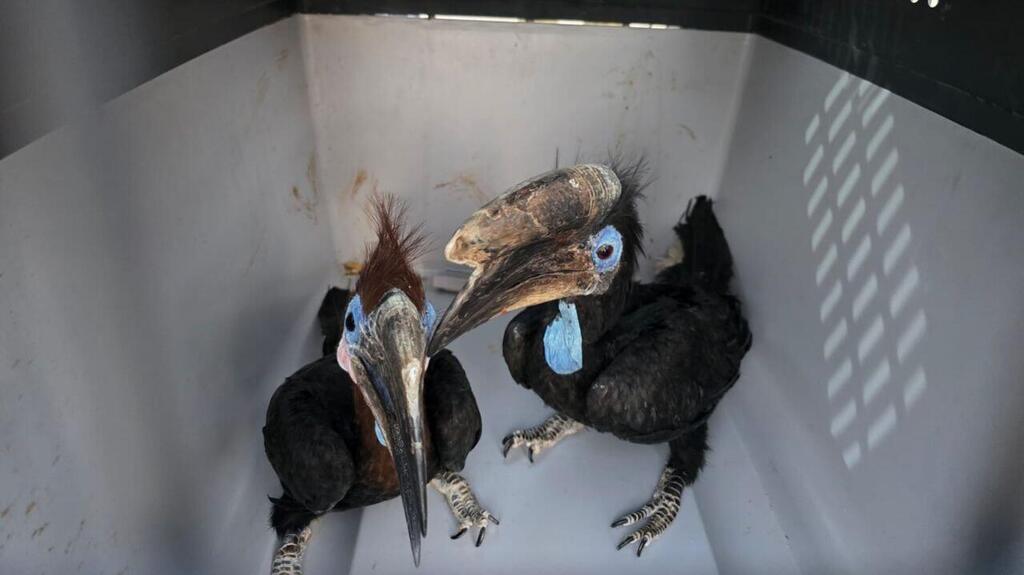

Dozens of exotic animals rescued in Israeli raid on illegal wildlife trade in West Bank
(Photo: Israel Nature and Parks Authority)
During the raid, inspectors discovered a wide array of animals being kept in captivity, including endangered and exotic species. Among the animals found were mountain gazelles, African hornbills, hyenas, porcupines, tortoises, turtles, pheasants, kestrels, eagle owls and two green vervet monkeys native to Africa.
Some of the species are native to Israel and are considered endangered, while others are non-native and likely smuggled into the country. All of the animals are classified under Israeli law as protected, meaning their capture, trade or possession without a permit is illegal.
The animals were relocated to care facilities across the country, including the Israel Primate Sanctuary and the Wildlife Hospital at the Ramat Gan Safari near Tel Aviv, where they will undergo health assessments and rehabilitation.
Get the Ynetnews app on your smartphone: Google Play: https://bit.ly/4eJ37pE | Apple App Store: https://bit.ly/3ZL7iNv
In addition to the animals, authorities seized illegal hunting equipment, including a mist net containing bird carcasses, and two unauthorized airsoft rifles designed to resemble M-16s.
The investigation, led by the INPA's anti-poaching unit, highlights ongoing concerns about wildlife trafficking in the region, where enforcement of environmental and animal protection laws can be complicated by overlapping jurisdictions and limited cross-border coordination.
The suspects are under investigation for illegal wildlife trade, hunting violations and possession of unlicensed weapons.


